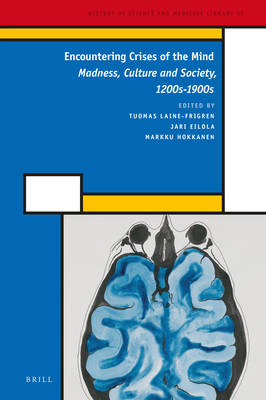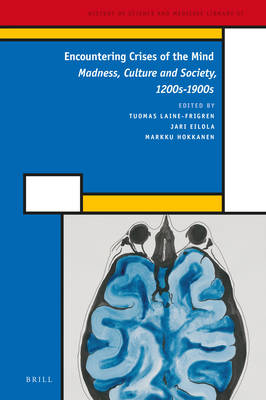
- Afhalen na 1 uur in een winkel met voorraad
- Gratis thuislevering in België vanaf € 30
- Ruim aanbod met 7 miljoen producten
- Afhalen na 1 uur in een winkel met voorraad
- Gratis thuislevering in België vanaf € 30
- Ruim aanbod met 7 miljoen producten
Zoeken
Encountering Crises of the Mind
Madness, Culture and Society, 1200s-1900s
€ 236,95
+ 473 punten
Omschrijving
Mental health and madness have been challenging topics for historians. The field has been marked by tension between the study of power, expertise and institutional control of insanity, and the study of patient experiences. This collection contributes to the ongoing discussion on how historians encounter mental 'crises'. It deals with diagnoses, treatments, experiences and institutions largely outside the mainstream historiography of madness - in what might be described as its peripheries and borderlands (from medieval Europe to Cold War Hungary, from the Atlantic slave coasts to Indian princely states, and to the Nordic countries). The chapters highlight many contests and multiple stakeholders involved in dealing with mental suffering, and the importance of religion, lay perceptions and emotions in crises of mind.
Contributors are Jari Eilola, Waltraud Ernst, Anssi Halmesvirta, Markku Hokkanen, Kalle Kananoja, Tuomas Laine-Frigrén, Susanna Niiranen, Anu Rissanen, Kirsi Tuohela, and Jesper Vaczy Kragh.
Contributors are Jari Eilola, Waltraud Ernst, Anssi Halmesvirta, Markku Hokkanen, Kalle Kananoja, Tuomas Laine-Frigrén, Susanna Niiranen, Anu Rissanen, Kirsi Tuohela, and Jesper Vaczy Kragh.
Specificaties
Betrokkenen
- Uitgeverij:
Inhoud
- Aantal bladzijden:
- 316
- Taal:
- Engels
- Reeks:
- Reeksnummer:
- nr. 57
Eigenschappen
- Productcode (EAN):
- 9789004308527
- Verschijningsdatum:
- 27/09/2018
- Uitvoering:
- Hardcover
- Formaat:
- Genaaid
- Afmetingen:
- 160 mm x 239 mm
- Gewicht:
- 566 g

Alleen bij Standaard Boekhandel
+ 473 punten op je klantenkaart van Standaard Boekhandel
Beoordelingen
We publiceren alleen reviews die voldoen aan de voorwaarden voor reviews. Bekijk onze voorwaarden voor reviews.










